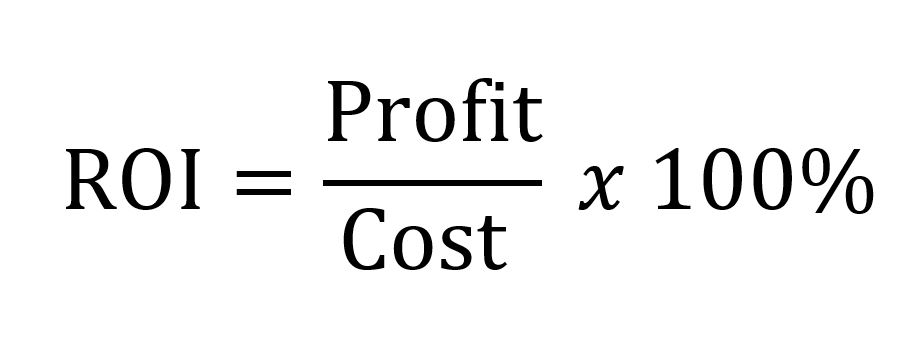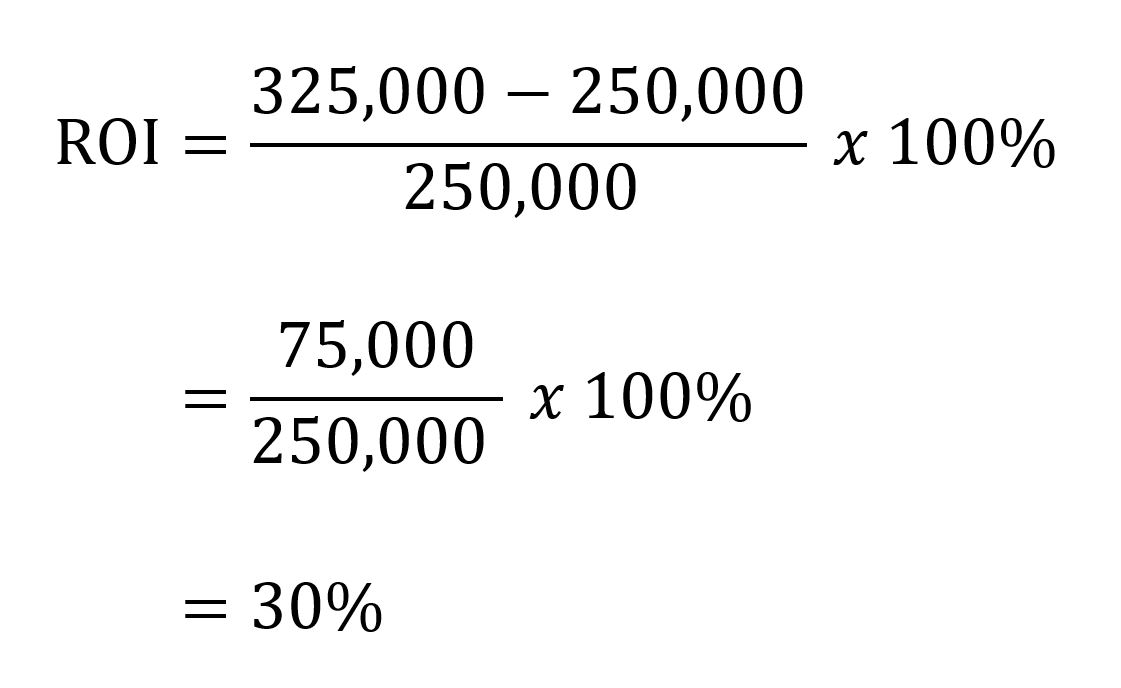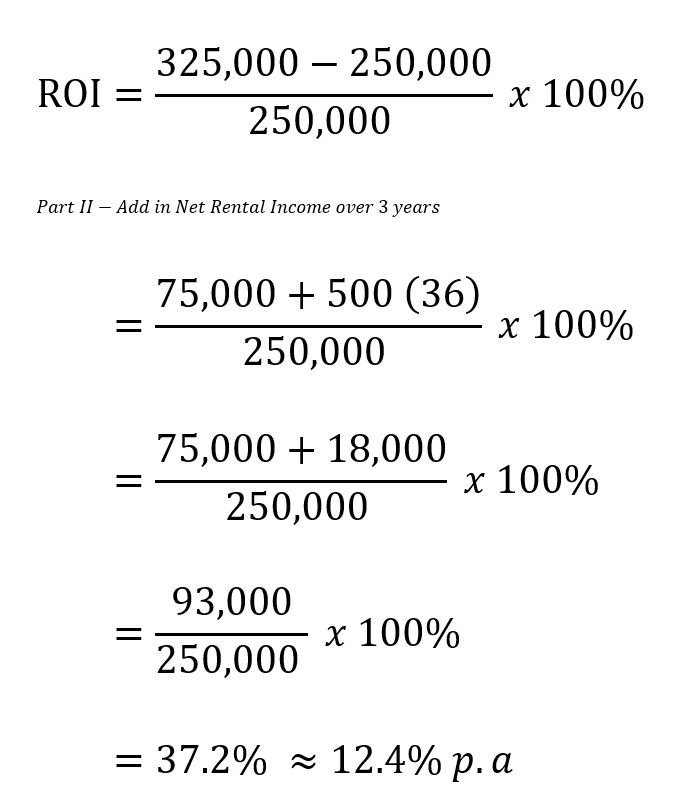How the wealthy grow their wealth is through investment. The wealthy also well aware that by saving alone won’t reach their financial goal. The topic about investment is very broad. Though the definition for investment in Google search return as the action or process of investing money for profit. I can only partially agree with this definition as investment can be in the form of time, money, effort, knowledge etc. However, when it comes to an investment that related to money, has to be measurable. In this article I will focus in property investment. And I will share how to calculate ROI on rental property.
What is ROI
You may hear about this all the time. ROI stands for Return on Investment. Investopedia has the best definition for ROI;
Return on investment (ROI) is a performance measure used to evaluate the efficiency or profitability of an investment or compare the efficiency of a number of different investments. ROI tries to directly measure the amount of return on a particular investment, relative to the investment’s cost.
I purposely bold the word compare. Not only we use the ROI to measure the performance of our investment, but at the same time we use the same metric to compare with different investments in order for us to make a better decision. This is important as we do not invest based on guess work but rather facts and figures.
Why Invest
In general, we invest because we want to make profit. This is as simple as it gets. But if we looked into investing in property, then the reasons could vary. This could be relocation due to new job offer, sending children to overseas to study, building assets or perhaps diversification. Sometimes profit is not the only reason why people invest in property.
Why Property
There are many reasons why we invest in property. To list of the the reasons;
- To build wealth
- The price of the property the lowest in your location
- The ability to leverage
- Relatively stable price
- Tax benefits
- any many more.
I’ve written a blog post previously on Why Invest in Real Estate Especially in Malaysia. You can read more about it here.
Why Not Stocks
To be honest stocks is good especially on the liquidity part. But what I like about property is the consistent cash flow and the ability to leverage on the banks. Property prices tend to be stable. Unlike stocks, the prices fluctuate a lot and very volatile. Giving time, property will become an asset as equity increase while the balance loan reduces. And of course, property will only considered an asset if you have positive cash flow every month (after minus off all instalment and expenses). Otherwise it is a liability. If you have 10k, perhaps you can read this blog What To Invest With 10k In Malaysia to see the comparison if you were to invest in stocks vs property.
Why Calculate ROI
We calculate ROI for two reasons. First is to know if we were to put money into something (investment), what’s the outcome of the activity once the exercise completed. From there we will be able to compare with other similar activities to see which one is better for us. Second is to make decision whether we should put our hard earn money into the activity or not. Most investors know about ROI is because it provides an easy and direct method to compare net gains to costs of an investment. Businesses use this a lot but under different terms and measurement. For example, online marketer will use ROAS (Return On Advertising Spend). This is to calculate how much advertising budget to generate X amount of revenue. The underlying concept is the same.
How To Calculate ROI On Rental Property

In property, the profit is essentially the market value minus your buying price. As for the cost is price your bought the property.

Example:- Lim bought the a condominium in Kuala Lumpur for RM250,000 in 2018. After few years in 2021, he sold the property for RM325,000.

The ROI for Lim is 30%. We can also calculate how much per annum that Lim is making. With this, we have to take the year where Lim bought and sold the property. Lim keeps the property for three years. So the average annual return for Lim is 10% per annum. (30% ROI / 3 years).
So let’s take the same example but we add one more criteria. Let’s say Lim is getting net rental of RM500 per month over three years. What is Lim’s ROI?

Lim gets extra 2.4% return per annum from rental alone. An additional income from rental over three years will be able to increase overall return. Now you should know how to calculate ROI on rental property. This is one of the most used formula for property investors. So, make sure you remember the formula as you will never know when you will need it.
Conclusion
The example above is not hypothetical. In order to achieve the result above, you have to find ‘investment grade’ property. The key to property investment is the rental. If you want to learn how to look for investment grade property, check out my book Best Time To Invest in Property where I share systematic approach in finding investment grade property. There are steps that you need to take in order to triangulate the best property out there in the market. Learn more about the book here.
「If this article is useful to you, feel free to buy me a coffee ☕」
If this article is useful to you, feel free to buy me a coffee ☕
